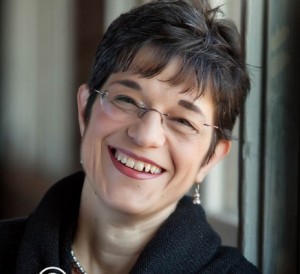We very much look forward to seeing you on April 10-12 for the 2012 Hewlett OER Grantees Meeting. This email contains important details regarding logistics and the agenda. Please read it carefully and let us know if you have any questions.
[1] Locations & Maps: On Tuesday, April 10th, registration and check in will begin at 3PM in the Milstein East Room, on the 2nd floor of Wasserstein Hall (1563 Massachusetts Ave, Cambridge, MA) on the campus of Harvard Law School. A map can be found here: http://bit.ly/GUGIDH. Directions from the local hotels, Harvard Square, or the airport to Harvard Law School can be found here: http://cyber.law.harvard.edu/hewlettgranteesmtg2012/Travel_Related
[2] Agenda: The final agenda for the conference has been posted to the website: http://blogs.law.harvard.edu/oer2012/agenda/. We are planning for each session to engage in focused conversation, with an eye towards deepening our dialogue and fostering insightful conversation. We are committed to genuine interactivity throughout the event; all attendees bring important (and diverse) knowledge, expertise and experience to the key topic areas, and we hope to encourage active engagement from all participants.
[3] Participants: We encourage you to continue to post bio and contact information to the wiki page: http://cyber.law.harvard.edu/hewlettgranteesmtg2012/Main_Page#ATTENDEES. The affiliations listed on this page will be printed on your name badges, so please edit this page or email us edits by Thursday, April 5th.
[4] Poster/Exhibition Sessions: Please let us know if you would like to demo a project or reserve a space to discuss and present your work. We are hoping to create an informal “bazaar-like” exhibition space on the afternoon of April 11th and the morning of April 12th, which will enable various grantees and other participants to showcase their work and engage with others during the breaks. You may bring a laptop or a small poster to set up, and we will have tables near the break area. If you would like to set up a demonstration, please let us know by Thursday, April 5th at the latest. We ask that poster session participants set up materials during the lunch break.
[5] Hack Day: Thank you to those who expressed interest in participating in the Hack Day; we will be in touch under separate cover regarding final details. For those who haven’t yet RSVPd yet, it’s not too late. Please email ashar@cyber.law.harvard.edu by Thursday, April 5th so that we can save you a spot. More information about the Hack Day can be found here: http://blogs.law.harvard.edu/oer2012/hack-day/
[6] Recording and In the Moment Technologies. We will be recording meeting sessions and plan to post select discussions online to the event’s website. We encourage you to tweet, blog, and otherwise document the proceedings and share your outputs with ashar@cyber.law.harvard.edu or on the event wiki. The hashtag for the event is #oer12hf.

 In theory, Open Educational Resources and wikis go hand in hand. In our ranks, we have some of the most dedicated and accomplished users and advocates the collaborative online tools. So why is it that the OER article on Wikipedia carries the site’s second-lowest quality rating? It’s not just one article — the Open Access article shows room for improvement; the Open Educational Practices article doesn’t exist; and numerous related articles could be improved as well.
In theory, Open Educational Resources and wikis go hand in hand. In our ranks, we have some of the most dedicated and accomplished users and advocates the collaborative online tools. So why is it that the OER article on Wikipedia carries the site’s second-lowest quality rating? It’s not just one article — the Open Access article shows room for improvement; the Open Educational Practices article doesn’t exist; and numerous related articles could be improved as well.